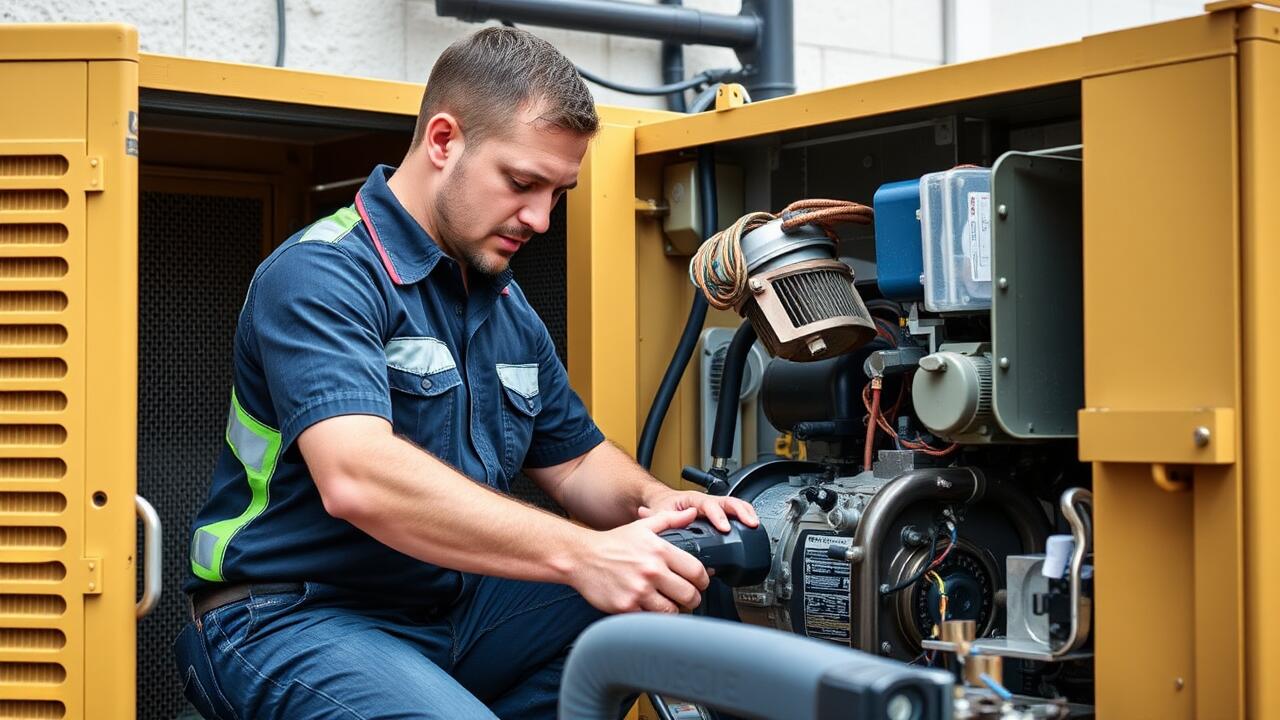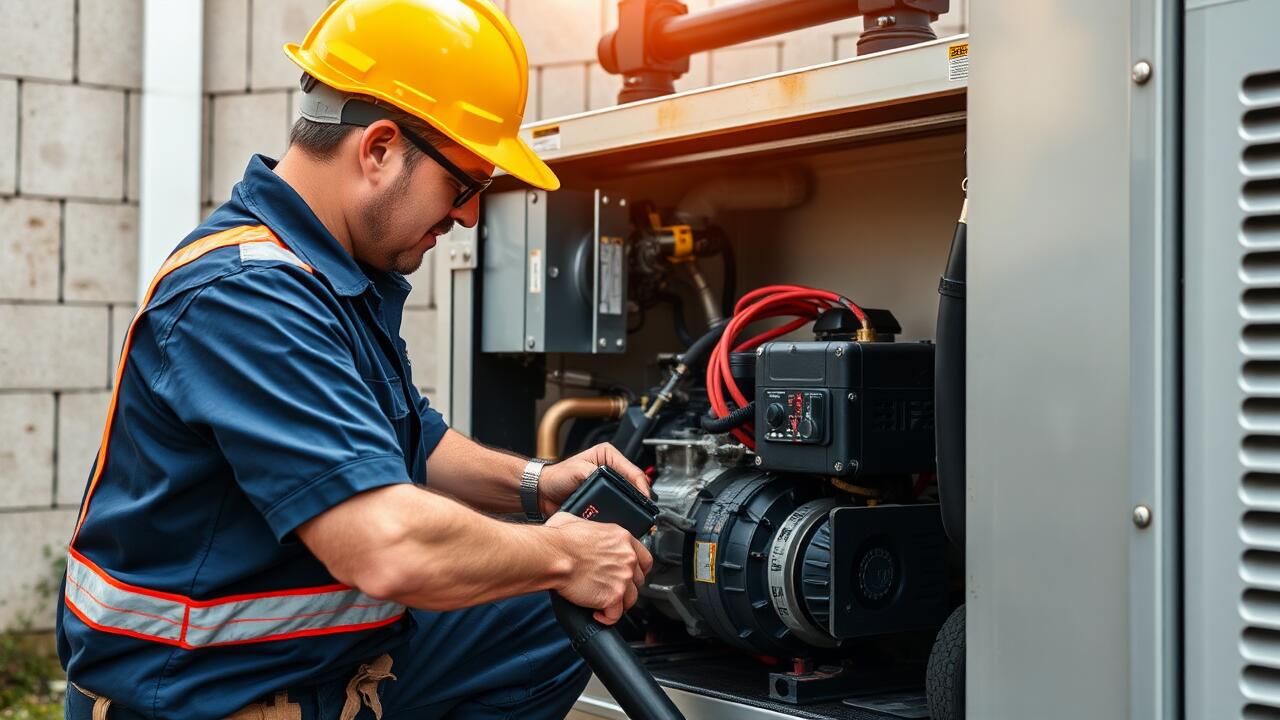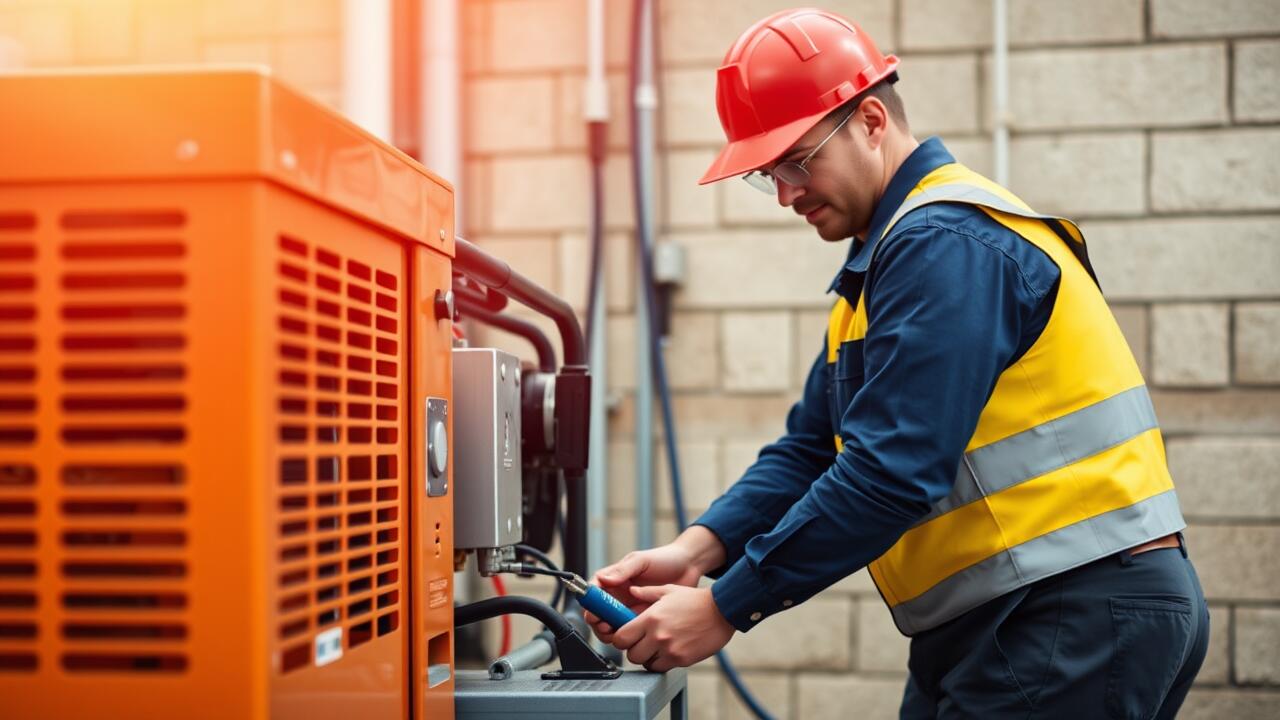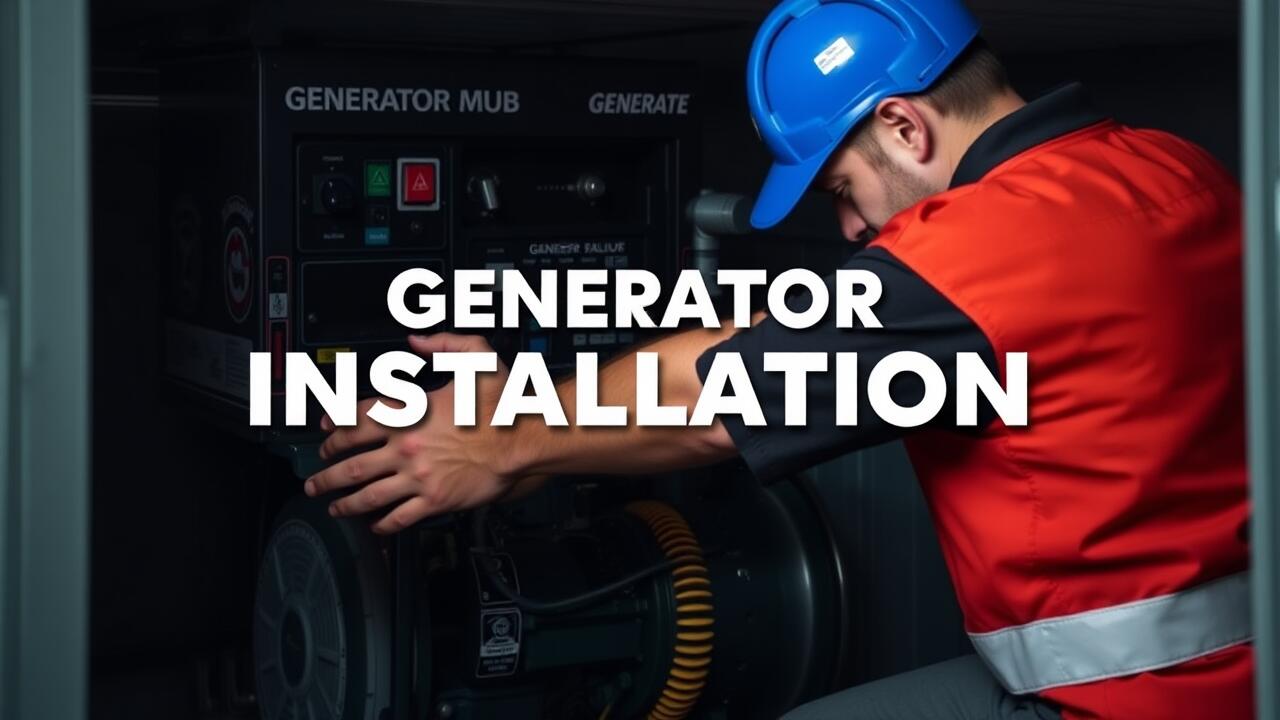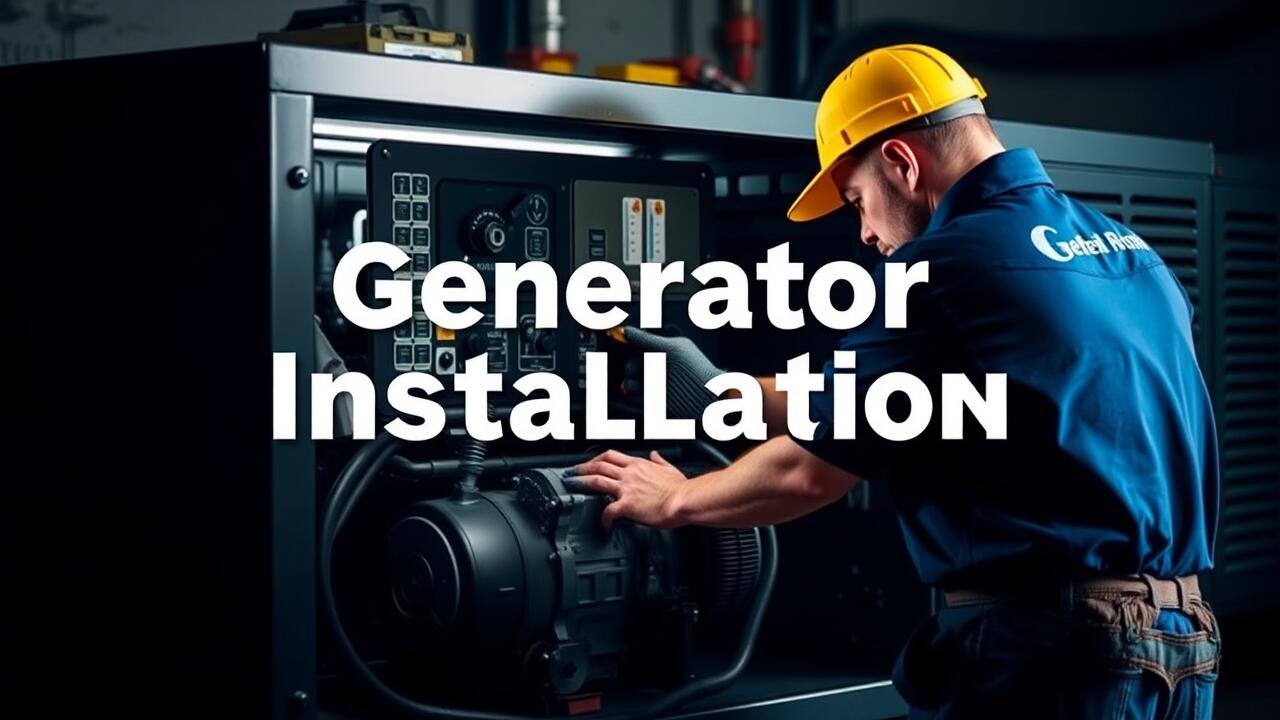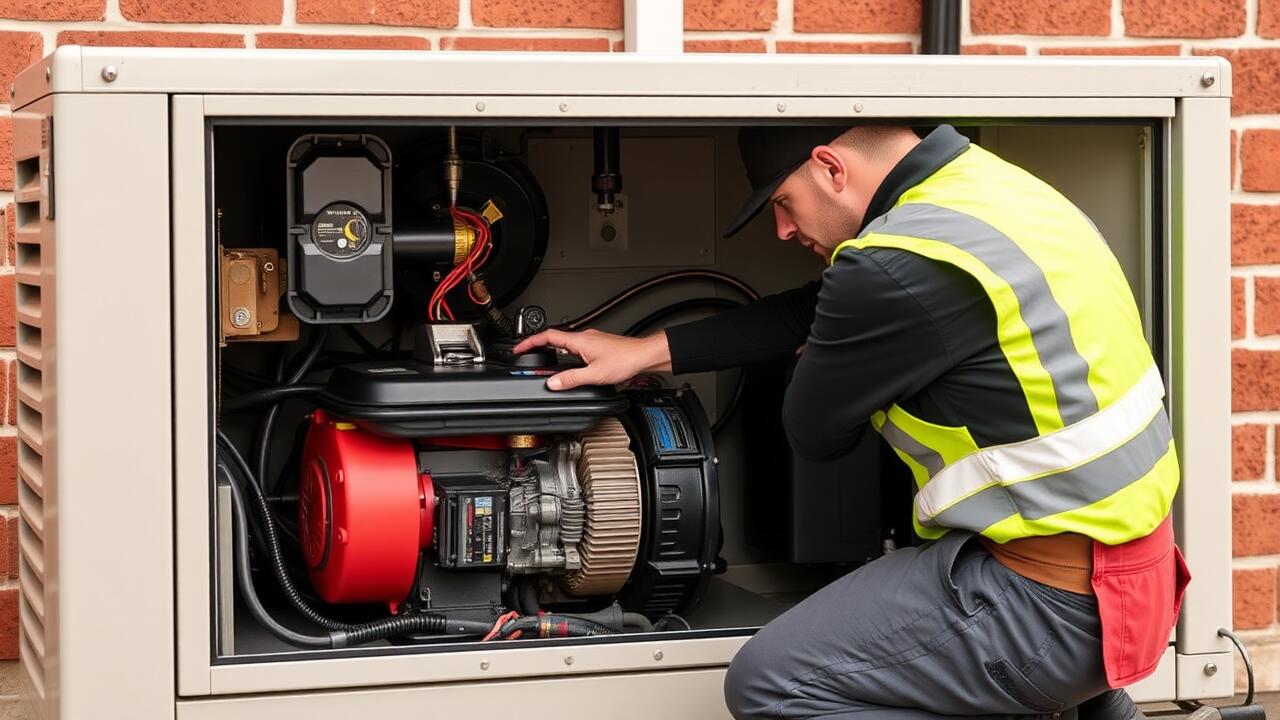
Permits and Inspections
When planning for generator installation, obtaining the necessary permits and scheduling inspections is crucial. Many jurisdictions require permits to ensure compliance with local codes and safety standards. This process can vary significantly based on location, making it essential to research local regulations specific to generator installation in Houston. The time it takes to secure permits can impact the overall installation timeline, so it's advisable to begin this step early in the planning phase.
Inspections play a vital role in confirming that the installation meets all safety and performance criteria. After installing a generator, an inspection may be required to verify that everything adheres to the outlined specifications. Delays in obtaining inspection approvals can hinder the generator's operation, highlighting the importance of adhering to local guidelines during the generator installation process in Houston. Staying informed about these requirements ensures a smoother installation experience.
Importance of Local Regulations
Local regulations play a crucial role in determining the timeline and process for fitting a generator. Each city or municipality has specific requirements that may involve obtaining permits, adhering to safety codes, and passing inspections. Failing to comply with these regulations can lead to costly delays and potential fines, making it important for homeowners to familiarize themselves with local laws before initiating a project. In cities like Houston, where regulations can vary, understanding the guidelines for Generator Installation Houston ensures that the installation proceeds smoothly.
Additionally, local utility companies may have protocols for connecting new generators to the grid. These connections often require coordination with the utility provider, which can extend the time it takes to complete the installation. Homeowners should consider reaching out to their local authorities or utility companies early in the planning phase to get an idea of the requirements and estimated timelines. Being proactive about understanding these regulations can help streamline the installation process and avoid any unexpected hurdles.
Weather and its Effect on Installation
Weather plays a significant role in the timing of generator installation. Factors such as rain, snow, and extreme temperatures can delay the process. For instance, heavy rain can create muddy conditions that complicate digging and foundation work. Similarly, extreme cold can impact concrete curing times and make outdoor work uncomfortable for technicians. Residents need to consider these elements when scheduling their generator installation.
In areas like Midtown, Houston, summer heat can also pose challenges. High temperatures can lead to safety concerns for workers and increased fatigue, potentially extending the installation timeline. Additionally, unexpected weather events, such as thunderstorms or hurricanes, could not only postpone the installation but also affect availability of materials and skilled labor. Planning ahead becomes essential to minimize weather-related delays for generator installation in this region.
Seasonal Considerations
Seasonal changes can significantly impact the timeline for generator installation. For instance, summer months may present challenges such as extreme heat, which can affect the comfort and health of the workers. Likewise, winter installations may face delays due to snow and ice making access to job sites difficult. Each season brings unique weather patterns that can influence both the scheduling and the safety of the installation process.
Homeowners in areas like Midtown, Houston, should also consider the optimal time of year for installation. Spring and fall can provide moderate temperatures, making these seasons ideal for installation projects. Scheduling during these times can help minimize delays and ensure that the installation team can work efficiently without weather-related interruptions. Proper planning around seasonal conditions can lead to a smoother installation experience for anyone considering generator installation Midtown, Houston.
Hiring Professionals vs. DIY Installation
When considering generator installation, homeowners often face the choice between hiring professionals and opting for a DIY approach. Professional installers bring expertise and experience, ensuring compliance with local regulations and safety standards. Many companies offer dedicated services, such as Generator Installation Montrose, Houston, which can streamline the process and provide peace of mind for those unfamiliar with electrical work. The upfront cost of hiring experts may seem high, but the long-term benefits of reliable installation and maintenance can outweigh initial expenses.
On the other hand, some homeowners might prefer the DIY route to save money. This approach demands a good understanding of electrical systems, tools, and safety practices. Those with the right skill set may find it rewarding to tackle installation themselves; however, this option can lead to unexpected delays, especially if challenges arise. Calculating the time commitment is crucial, as improper installation could result in costly repairs or safety hazards, underscoring the importance of evaluating one's skills before proceeding without professional assistance.
Skill Levels and Time Commitments
The skill level of the individual performing the installation significantly impacts the time required for a generator setup. Those with prior electrical experience may complete the task more efficiently, often needing only a day or two. Conversely, homeowners with minimal DIY skills might take longer, as they navigate unfamiliar processes and potentially require additional assistance. For example, Generator Installation Houston can vary in duration based on the crew’s expertise, leading to quicker installations when professionals are involved.
Time commitments can also fluctuate based on the complexity of the installation site. Factors such as accessibility, the layout of utilities, and the specific requirements of the generator all play a role. In dense urban areas like Houston, coordinating with local services may extend the timeline further. Planning for possible delays is essential to avoid surprises during the installation process. Understanding both personal skill levels and site specifics can help in estimating the overall time commitment for generator installation.
FAQS
How long does it typically take to install a generator?
The installation time for a generator can vary widely, but it generally takes anywhere from a few hours to a couple of days, depending on factors like the type of generator and the complexity of the installation.
Do I need a permit to install a generator?
Yes, most areas require permits for generator installations to ensure compliance with local regulations and safety standards. It's best to check with your local municipality for specific requirements.
How does weather affect generator installation?
Weather can significantly impact the installation process. Adverse conditions such as heavy rain, snow, or extreme temperatures may delay the work and require rescheduling for safety reasons.
Should I hire a professional for generator installation or try to do it myself?
While DIY installation can save money, hiring a professional is often recommended due to the technical skills required, compliance with local regulations, and safety considerations. It can also speed up the installation process.
What factors can extend the installation time of a generator?
Factors that can extend installation time include obtaining necessary permits, unexpected site conditions, weather delays, and the complexity of the electrical and plumbing work needed for the setup.
